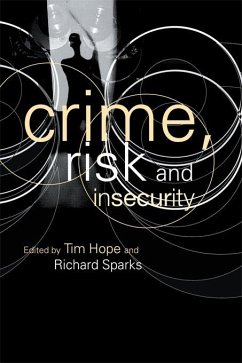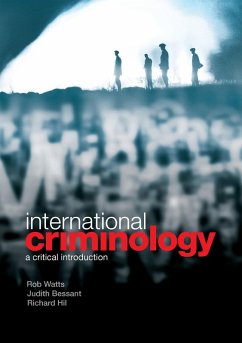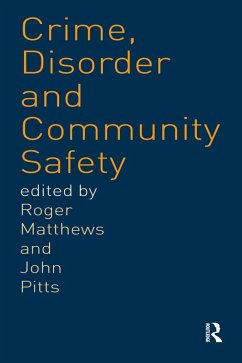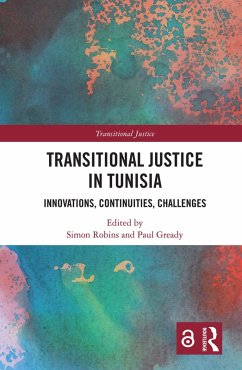
Criminal Justice and Criminology Research Methods (eBook, PDF)
Versandkostenfrei!
Sofort per Download lieferbar
81,95 €
inkl. MwSt.
Weitere Ausgaben:

PAYBACK Punkte
41 °P sammeln!
Criminal Justice and Criminology Research Methods, Third Edition, is an accessible and engaging text that offers balanced coverage of a full range of contemporary research methods.Filled with gritty criminal justice and criminology examples including policing, corrections, evaluation research, forensics, feminist studies, juvenile justice, crime theory, and criminal justice theory, this new edition demonstrates how research is relevant to the field and what tools are needed to actually conduct that research. Kraska, Brent, and Neuman write in a pedagogically friendly style yet without sacrific...
Criminal Justice and Criminology Research Methods, Third Edition, is an accessible and engaging text that offers balanced coverage of a full range of contemporary research methods.
Filled with gritty criminal justice and criminology examples including policing, corrections, evaluation research, forensics, feminist studies, juvenile justice, crime theory, and criminal justice theory, this new edition demonstrates how research is relevant to the field and what tools are needed to actually conduct that research. Kraska, Brent, and Neuman write in a pedagogically friendly style yet without sacrificing rigor, offering balanced coverage of qualitative, quantitative, and mixed methods. With its exploration of the thinking behind science and its cutting-edge content, the text goes beyond the nuts and bolts to teach students how to competently critique as well as create research-based knowledge.
This book is suitable for undergraduate and early graduate students in US and global Criminology, Criminal Justice, and Justice Studies programs, as well as for senior scholars concerned with incorporating the latest mixed-methods approaches into their research.
Filled with gritty criminal justice and criminology examples including policing, corrections, evaluation research, forensics, feminist studies, juvenile justice, crime theory, and criminal justice theory, this new edition demonstrates how research is relevant to the field and what tools are needed to actually conduct that research. Kraska, Brent, and Neuman write in a pedagogically friendly style yet without sacrificing rigor, offering balanced coverage of qualitative, quantitative, and mixed methods. With its exploration of the thinking behind science and its cutting-edge content, the text goes beyond the nuts and bolts to teach students how to competently critique as well as create research-based knowledge.
This book is suitable for undergraduate and early graduate students in US and global Criminology, Criminal Justice, and Justice Studies programs, as well as for senior scholars concerned with incorporating the latest mixed-methods approaches into their research.
Dieser Download kann aus rechtlichen Gründen nur mit Rechnungsadresse in A, B, BG, CY, CZ, D, DK, EW, E, FIN, F, GR, HR, H, IRL, I, LT, L, LR, M, NL, PL, P, R, S, SLO, SK ausgeliefert werden.













